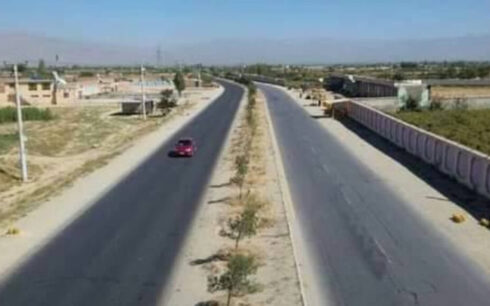Any reduction or pause in humanitarian operations in Afghanistan will have a severe impact on the population, according to a new report by ACAPS, an independent crisis analysis organization.
The report warns that the effects of funding cuts and restrictions on humanitarian operations will become clearer in the coming weeks, as organizations assess which programs can continue under newly issued waivers.
The concerns come after President Donald Trump issued an executive order on Jan. 20 calling for a 90-day suspension of U.S.-funded foreign aid, including humanitarian assistance. On Friday, Trump also called for the immediate closure of the U.S. Agency for International Development (USAID), just hours before most of its staff were set to be placed on administrative leave or laid off—an apparent step toward dismantling the government’s primary provider of global humanitarian and development aid.
ACAPS noted that Afghanistan’s 2025 Humanitarian Needs and Response Plan (HNRP) calls for $2.42 billion in humanitarian funding to assist 16.8 million people out of the 22.9 million in need. As of Feb. 3, however, less than 12 percent ($279.5 million) of the plan had been funded—74 percent of which was pledged by sources connected to the U.S. government, the organization said.
Residents have already begun feeling the economic impact.
“People are unemployed. There is no work. The price of food is high,” said a resident of Paktia. “In the past, goods were sold in Pakistani rupees, then it switched to Afghanis, but now it is still sold at the same high price.”
While some exemptions have allowed certain U.S. humanitarian aid programs to continue, ACAPS found that some life-saving projects—ones that should have been covered under existing waivers—remain suspended, with funding frozen.
A sharp fluctuation in Afghanistan’s currency market has been an immediate consequence of the restrictions, leading to higher prices for essential goods, including food and fuel. The United Nations Office for the Coordination of Humanitarian Affairs (OCHA) has warned that one-third of Afghanistan’s population will face severe hunger by March.
“We are unemployed. The government must take action. They need to regulate prices and assess the market,” another Paktia resident said.
Beyond the immediate crisis, U.S. policymakers have expressed concerns about Taliban access to humanitarian aid. The former head of the Special Inspector General for Afghanistan Reconstruction (SIGAR) has previously stated that a significant portion of these funds has ended up in the Taliban’s hands, raising questions about oversight and distribution.





